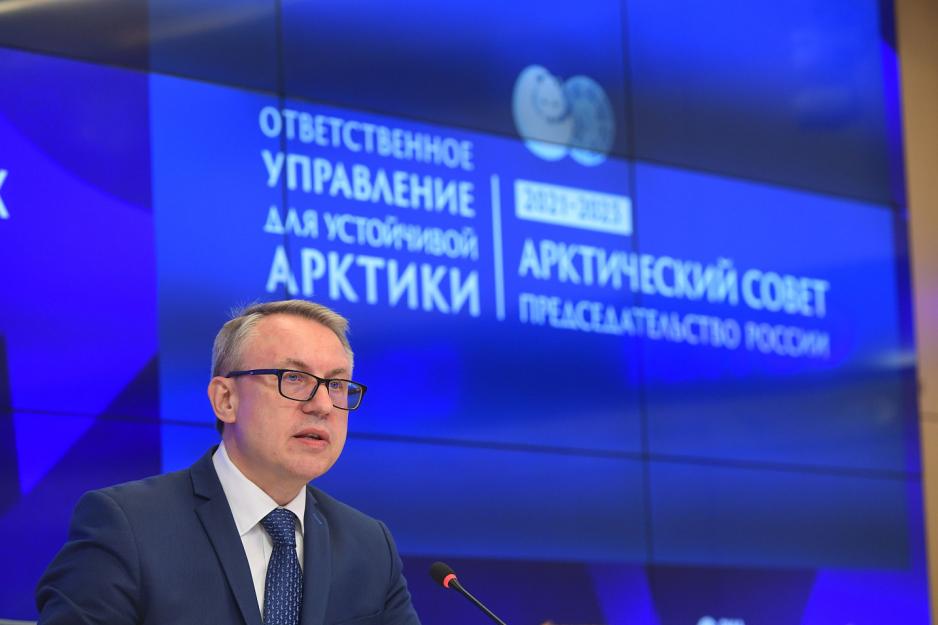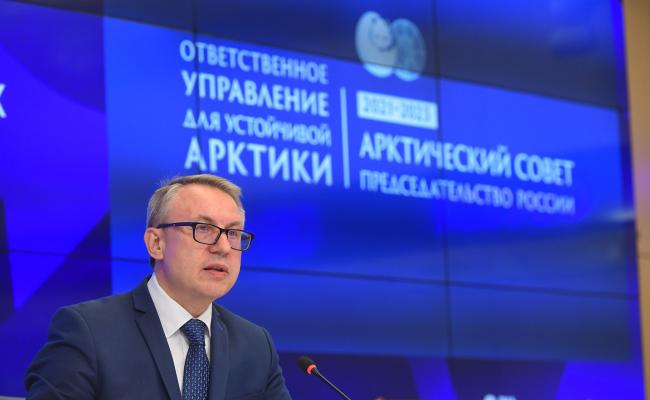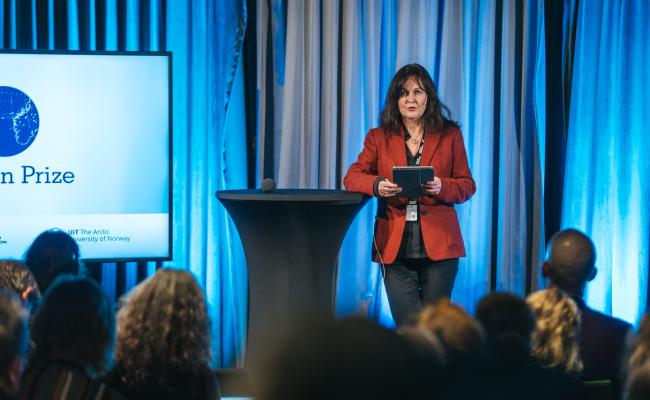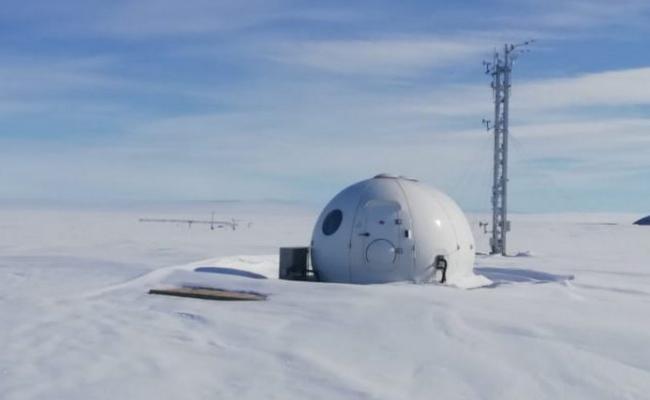Op-ed Russia Suspends Funding for the Arctic Council: Wake up Call Not Death Knell

Nikolay Korchunov is Russia's Arctic Ambassador and Senior Arctic Official in the Arctic Council. Recently, Russia decided to suspend annual payments to the Arctic Council. (Photo: Roscongress).
This is a opinion article, written by an external contributor. The article expresses the writer's opinions. High North News is not responsible for the content in external links
If you are an Arctic enthusiast like me, your newsfeed on Wednesday morning was likely full of articles announcing Russia’s decision to suspend annual payments to the Arctic Council until “real work” resumes or some variation on that theme.
Not surprisingly, I had colleagues who immediately assumed that this was a sign of the further decline of Arctic cooperation and another nail in the coffin for the Arctic Council. But, as someone who has studied and worked for the Arctic Council, this announcement actually gave me hope, and I want to share my geeky knowledge of this institution to explain why.
First, suspending funding to the Arctic Council is not as dramatic as it sounds. The activities of the Arctic Council are primarily supported by in-kind and financial contributions from those directly involved in specific projects.
For example, the Aleut International Association, Finland, and the United States might decide to contribute to a project related to waste management; Iceland, Canada, and Saami Council to a project on gender equality; and Gwich’in Council International, Norway and the United States to a wildland fire project. In each case, the expertise and funding for the project comes from the institutions involved.
Most likely, Russia was in fact indicating that it is suspending its annual funding to the Arctic Council Secretariat (ACS).
There is no core Arctic Council funding for the many assessments, toolkits, analyses, events, and other products that have been delivered by the Council over the last 25+ years. This lack of core funding to support the Council’s priorities has been a source of frustration and the topic of much debate over the years, but in this instance, it means that the Council’s ability to function is not dependant on the financial contributions of any one Arctic state.
Most likely, Russia was in fact indicating that it is suspending its annual funding to the Arctic Council Secretariat (ACS). The small (but mighty) team based in Tromso, Norway that provides administrative and communication support to the Arctic Council. While the ACS will certainly have to make some adjustment because of this reduction in funding, it is important to note that more than 40% of its budget comes from its host country (Norway) and the remainder is split between the seven other Arctic states.
This means that Russia’s decision to suspend funding results in a decrease of a little more than 8% of the ACS’ annual budget. Not exactly the death knell for the Arctic Council that you may have initially imagined.
Next, I would argue that Russia’s announcement demonstrates that they want real cooperation through the Arctic Council and not just the symbolic fig leaf that the Council is at risk of becoming. With other multilateral institutions, they have cut ties completely. Here, we see a measured approach – a “pause” on funding that is more a symbolic gesture than a heavy blow.
They even emphasized that Russia’s departure from the Council, while possible, is not under serious consideration at this time. They are signalling that the current working arrangements in the Arctic Council aren’t enough. And can anyone really argue with that?
We are at a crossroads in Arctic governance. The Arctic Council is alive, but hobbling. Based on multiple accounts, efforts to re-invigorate working-level cooperation have had mixed results, but it is far from where we need to be to effectively respond to the critical issues facing the region and the globe – mitigating and adapting to climate change, supporting resilient and thriving Arctic peoples and communities, pressing infrastructure needs, growing demand for the region’s resources, increasing risk of human-induced and natural disasters, and so many more.
Russia’s announcement makes it clear that the status quo is not an option. This is a wake up call. The Arctic Council can still play a central role in circumpolar cooperation, but there is more work to do to get there.





